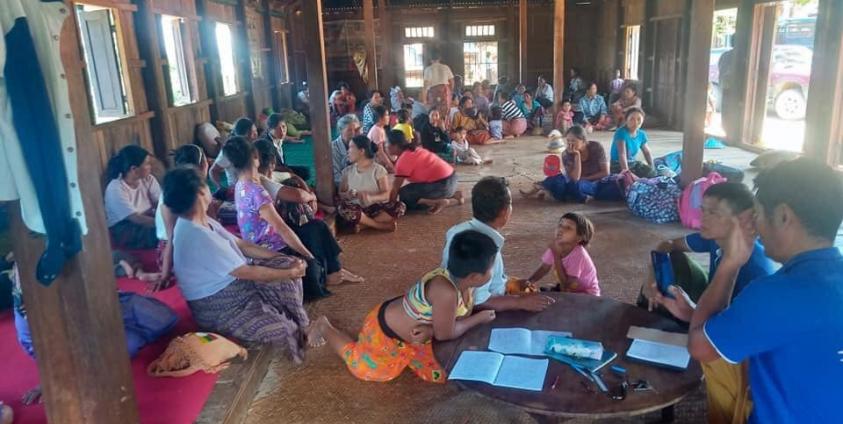SENG PHOO — A Shan politician says he refused to join an army investigation into the killing of a civilian and others wounded by Burma Army soldiers in northern Shan State because the investigation would be flawed.
Sai Tun Win, a parliamentarian for Kyaukme Township, told SHAN the Burma Army did not allow him to invite the media when they visited the village in Hai Kwee village-tract where the civilian was killed. And they went there fully armed.
A resident of Pang Kyin said the military column was providing security for a brigade commander and several high-ranking officials, including the township’s general administration officer. They travelled to the village this Wednesday (July 15) to purportedly investigate the charges against soldiers from IB 23, IB 22 and IB 147 for killing Long Su, an elderly farmer, and wounding two other civilians.
Sai Kyaw, from Kyaukme town, says because they didn’t allow the media to cover it “there is no transparency” with this investigation. In addition, the arrival of heavily armed soldiers is threatening to civilians, who are already traumatized after Tatmadaw soldiers killed and wounded fellow villagers. The presence of the Burma Army column, he says, could have sparked fresh clashes with the Restoration Council of Shan State/Shan State Army (RCSS/SSA).
Only a day earlier, dozens of villagers took refuge in a Buddhist monastery after fighting broke out between the Burma Army and RCSS/SSA near their village in Loi Sawnt village-tract.
From June 25-29, civilians in Kyaukme Township fled their homes during fighting between the Burma Army and RCSS/SSA. Long Su was shot and killed on June 29 by Tatmadaw soldiers. Nang Seng, from the same village, was also shot by the Burma Army and survived the attack. Sai Aik Maung, from Akee village, was beaten unconscious by soldiers and hospitalized.
On July 10, over 10,000 civilians, carrying banners with pictures of Long Su, Nang Seng and Sai Aik Maung peacefully protested in the town of Kyaukme. Police tried to prevent out of town protesters from joining by erecting barricades, but later allowed them in.
The same day, Sai Than Maung, Jotika and Aria were charged for leading the protest under section 19 of the Peaceful Assembly and Peaceful Procession Law and section 18 of the Communicable Disease Prevention Law.







